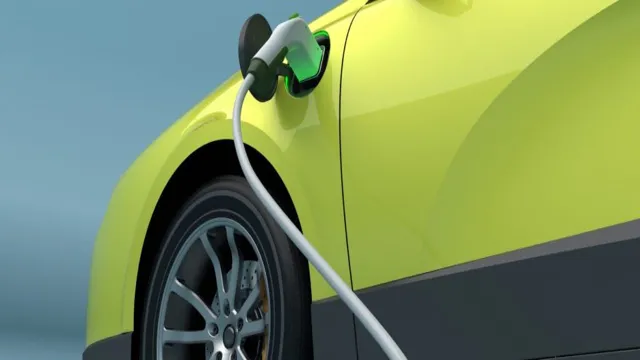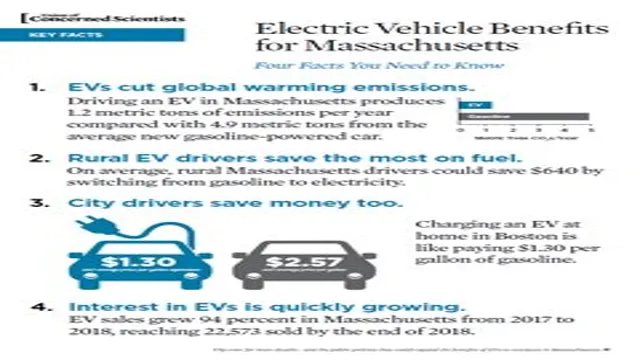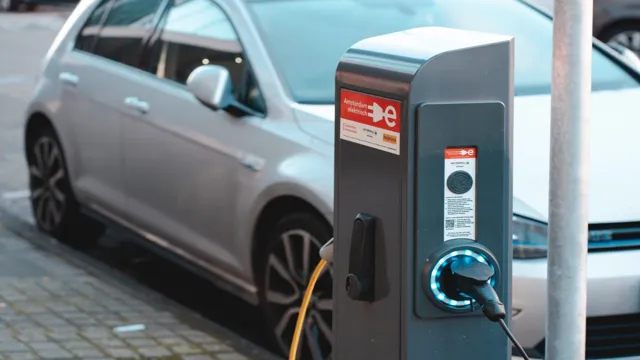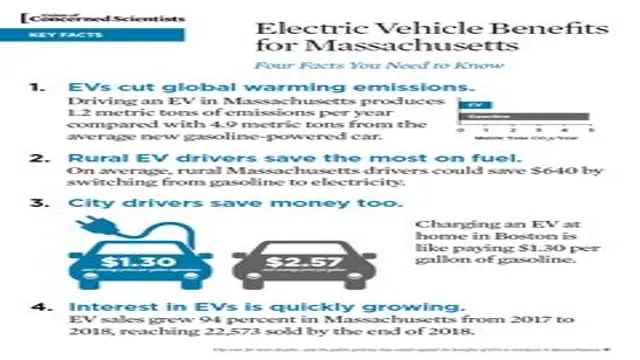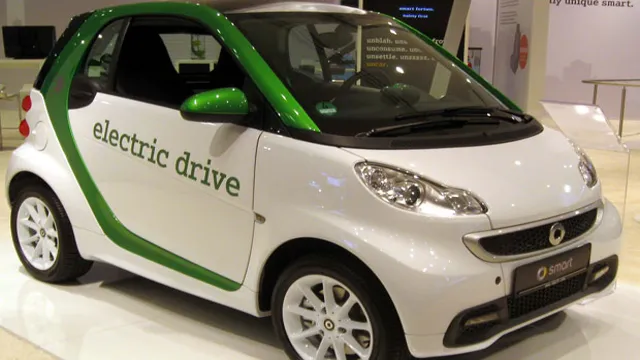Unleashing the financial benefits of electric cars: Understanding the Tax Benefits
As we continue to explore ways to reduce our carbon footprint, electric cars have become increasingly popular. Not only do they help the environment, but they also provide some impressive tax benefits. In fact, buying an electric car can actually save you money in the long run.
But what are these tax benefits exactly, and how do they work? In this blog post, we’ll dive into the world of electric car tax incentives and explore the various benefits you can enjoy by choosing to make the switch. So buckle up and let’s go for a ride into the world of electric car tax benefits!
Reduced Tax Liability
One of the major tax benefits of owning an electric car is the reduced tax liability. This can be in the form of tax credits and rebates offered by the federal government and some states. Federal tax credits can be as much as $7,500, depending on the battery capacity and make of the vehicle.
Additionally, some states offer their own incentives, such as tax credits, exemptions from sales tax, and reduced registration fees for electric vehicle owners. These benefits can significantly reduce the cost of owning and operating an electric car, making it a financially savvy investment for those who want to reduce their carbon footprint while saving money. It’s worth noting, however, that these incentives may vary by location, so it’s important to research the available tax benefits in your area before making a decision to purchase an electric car.
Electric vehicles can qualify for federal tax credit up to $7,500.
Electric vehicles are becoming increasingly popular, not only because they’re environmentally friendly but also because they can help reduce tax liability. Federal tax credits of up to $7,500 are available for electric cars, provided you meet certain criteria. If you’re looking to buy a new car, an electric vehicle could be an excellent choice.
Not only will you be reducing your carbon footprint, but you’ll also qualify for a generous tax credit. It’s important to note that the tax credit amount varies based on the battery size of your vehicle, so consult with an expert before making a purchase decision. Nonetheless, if you’re in the market for a new car and want to save money on your taxes, an electric vehicle could be the way to go!

Many state governments offer additional tax incentives for electric car purchases.
If you’re considering purchasing an electric car, be sure to check with your state government to see if they offer any tax incentives. Many states provide additional tax credits and exemptions for electric vehicle owners, helping to reduce the overall cost of ownership. These tax incentives can vary by state, so it’s essential to do your research to see what’s available.
For example, California provides a rebate of up to $2,000 for electric car purchases, while Colorado offers a tax credit of up to $4,500. These tax incentives are just one of the many advantages of owning an electric car, in addition to lower fuel costs and reduced emissions. So, if you’re in the market for a new environmentally-friendly car, make sure to explore your options and see how these incentives can help reduce your tax liability.
Lower Maintenance Costs
Electric cars have several tax benefits, and one of them is lower maintenance costs. By eliminating the need for oil changes, regularly replacing air filters, and typical engine maintenance, electric car owners can save a substantial amount of money on upkeep costs. Additionally, electric cars are built with fewer moving parts than gas-powered cars, which further reduces the amount of maintenance and the chance of something breaking down.
With electric vehicles, there is no need to do things like tune-ups, which can be expensive with standard combustion engines. In conclusion, the maintenance cost savings associated with electric cars can help offset the higher upfront costs associated with purchasing one. This benefit will be even more significant with the growing number of second-hand, pre-owned electric cars entering the market.
Plus, many states also offer incentives to buy electric cars, which, along with tax credits, can help to defray the initial cost even further.
Electric vehicles have fewer moving parts than traditional cars, leading to lower maintenance costs.
Electric vehicles are known for their lower maintenance costs when compared to traditional cars. This is because they have fewer moving parts, which means fewer parts that can break down or wear out over time. The absence of a gas-powered engine in electric vehicles means that there are no transmission fluids to change, spark plugs to replace, or oil filters to swap out.
Instead, electric vehicles require minimal routine maintenance, such as checking and replacing brake pads and performing regular tire rotations. Plus, electric vehicles have regenerative braking systems that help extend the life of brake pads, reducing the need for costly replacements. As a result, electric vehicle owners can save a lot of money on maintenance costs over the lifetime of their vehicle.
While the upfront cost of purchasing an electric vehicle may be higher than that of a traditional car, the potential cost savings in maintenance and fuel make them a financially wise choice in the long run.
Battery replacement costs may be offset through tax deductions.
One of the benefits of electric vehicles that many people don’t think about is the lower maintenance costs. Without the need for oil changes or complex transmission systems, electric vehicles have far fewer moving parts than traditional gas vehicles. This means fewer things that can break and less money spent on repairs.
Additionally, the batteries in electric vehicles are designed to last for many years, usually up to a decade, but when they do need to be replaced, there is potential for offsetting these costs through tax deductions. This means that while the upfront cost of an electric vehicle may be higher than a gas vehicle, the long-term savings on maintenance costs can make up for the difference. Plus, the peace of mind that comes with not having to worry about frequent repairs is certainly worth it.
Corporate Tax Benefits
If you’re considering buying an electric car, you’ll be happy to know that there are potential tax benefits to take advantage of. One of the primary tax benefits of owning an electric vehicle is the federal tax credit. This credit varies depending on the make and model of the car, and ranges from $2,500 to $7,500.
Additionally, some states offer their own tax incentives or rebates for purchasing an electric car. Not only can you save money on your taxes, but you’ll also save on fuel costs in the long run. Plus, you’ll be doing your part to help reduce emissions and protect the environment.
Overall, the tax benefits of owning an electric car can be a great incentive for making the switch from a traditional gas-powered vehicle.
Electric car purchases can lead to a reduction in corporate tax liability.
Are you a business owner looking for ways to reduce your corporate tax liability? Consider purchasing electric cars for your company fleet. Not only will it reduce your carbon footprint, but it can also lead to tax benefits. The IRS offers a federal tax credit of up to $7,500 for each new electric car purchased for business use.
Additionally, some states offer their own incentives, such as tax credits, rebates, and exemptions. By investing in electric cars, your company can lower its tax liability and help contribute to a cleaner environment. It’s a win-win situation! So why not consider making the switch to electric cars for your business?
Companies can also claim incentives for providing electric vehicle charging stations.
One of the many benefits that companies can gain from installing electric vehicle charging stations is the corporate tax incentive. The government incentivizes companies that invest in sustainable and eco-friendly projects by providing tax cuts and credits. When a company decides to install electric vehicle charging stations for their employees and customers, they make a significant contribution to the environment.
The tax benefits not only aid in cutting the cost for installing such charging stations, but they also reduce the company’s overall tax liabilities. This is a win-win situation for companies as they get to enjoy tax savings while supporting a greener future. By investing in electric vehicle charging infrastructure, companies not only promote sustainability but also encourage the adoption of electric vehicles.
Additionally, installing charging stations can boost the company’s green credentials and help attract eco-minded customers and employees. So, if you’re a business owner looking to implement green initiatives, investing in EV charging stations is not only beneficial for the environment but also for your company’s bottom line.
Conclusion
In conclusion, the tax benefit of electric cars can be summed up in one word: electrifying. By incentivizing the adoption of these eco-friendly vehicles, governments are not only encouraging a greener future, but also saving taxpayers money in the long run. With lower operating costs and the chance to reduce emissions, going electric just makes cents – and dollars too.
“
Tax benefits make electric cars an attractive option for individuals and businesses looking to save money.
Electric cars are becoming increasingly popular for both individuals and businesses due to their many tax benefits. One area where businesses can save a significant amount of money through electric vehicles is through corporate tax benefits. In the United States, businesses can receive a tax credit of up to $7,500 for each electric car they purchase.
This credit can greatly offset the cost of purchasing an electric car for a business. In addition, businesses can also benefit from tax deductions for the cost of charging stations and other related expenses. The savings can be even greater for businesses that operate fleets of vehicles, as they can benefit from even more tax incentives.
By taking advantage of these corporate tax benefits, businesses can save money while also contributing to a cleaner and greener environment.
FAQs
What are the tax benefits of owning an electric car?
Electric car owners may be eligible for federal tax credits up to $7,500. Additionally, some states offer their own tax incentives for owning an electric vehicle.
Can businesses also claim tax benefits for owning electric cars?
Yes, businesses may be eligible for tax credits or deductions for purchasing electric vehicles for use in their operations.
Are there any additional tax benefits for charging an electric car at home?
Some states offer tax credits or rebates for installing a home charging station for your electric car.
Are there any tax benefits for leasing an electric car instead of buying one?
Yes, lessees of electric cars may also be eligible for the federal tax credit of up to $7,500. However, the tax credit typically goes to the leasing company, which may pass on some or all of the savings to the lessee through lower monthly payments.


